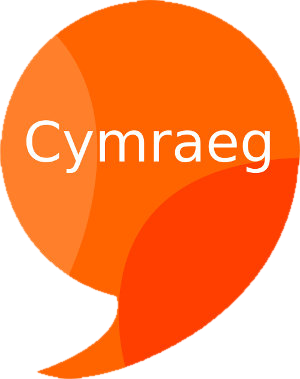The importance of the Welsh Language at work

More than just words
Following legislation and developments in language policy, service providers need to take reasonable steps to ensure that they have proportionate, appropriate and adequate staffing arrangements in place to provide a bilingual care service. By enhancing the workforce’s Welsh language skills, knowledge and understanding of bilingualism, this can help deliver better care services for everyone.

Legislation and policy in Wales require that Welsh language services in care are:
- of the same standard and are as easily and promptly available as English medium services
- as wide-ranging and thorough
- organisations shouldn’t assume English as the default language when providing their services
- Welsh speakers should not be required to ask for a service in Welsh.
Here are some useful links to Welsh language standards, planning and awareness. Information on rights, Welsh language schemes, and guidance to support delivery of a bilingual service.
Welsh Government Welsh language
Care Inspectorate for Wales (CIW)
What is more than just words?
‘More than just words’ is the Welsh Government’s Strategic Framework for the Welsh Language in Health and Social Care.
Its aim is:
- to ensure that the language needs of Welsh speakers are met
- to provide Welsh language services for those who need it
- to demonstrate that language plays an important part in the quality of care and isn’t seen as an “add-on”.
Both Welsh speakers and non-Welsh speakers alike have a part to play in delivering Welsh language services.
What is the ‘Active Offer’?
The ‘Active Offer’ means to provide a service in Welsh without having to ask for it. Welsh language services should be as available to users as the English language.
Actively offering Welsh language services ensures that people’s needs are understood and met and that those who access care services can rely on being treated with the dignity and respect they deserve.
To not actively offer Welsh language services may result in people’s dignity and respect being compromised.
*Visit our stakeholder toolkit to download the active offer learning resources*
How to assess Welsh language skills
The Welsh Language Skills in your workforce – has been designed to support the requirements of ‘More than Just Words’ by helping employers and managers identify what Welsh language skills their workforce have.
This resource includes a self-assessment that works out people’s skills in speaking, writing and reading Welsh from basic to fluent. All levels are important and much needed in the social care sector in Wales.
*Visit our stakeholder toolkit to download these learning resources*
Training resource to support bilingual working
A ‘train the trainer’ resource has been developed to support language awareness. This training has been designed for people working in health and social care, early years and childcare, and for people who are in further or higher education.
This presentation will
- illustrate language awareness and how best to work bilingually
- educate learners on how to offer a valuable service
- can be used as part of an induction for people working in social care in Wales.
*Visit our stakeholder toolkit to download the presentation slides*
More resources to help your workforce
Work Welsh provides a free online course for beginners that’s tailored to those working in care. It covers topics such as how to have an initial face-to-face conversation in Welsh with the people you care for.
Sgiliaith (Grwp Llandrillo Menai) offer practical advice on good practice, staff training and resource to enhance learners’ bilingual skills and experiences.
Coleg Cymraeg Cenedlaethol give scholarships for undergraduate and postgraduate students to study higher education courses through the medium of Welsh. They have resources to support learners with the new CCPLD and HSC qualifications with little or no Welsh skills and offer ‘Prentis-iaith’ courses for apprentices who currently have little or no Welsh language skills. They enable apprentices to complete part of their HSC/CCPLD qualification in Welsh.
Iaith Gwaith (working Welsh) scheme and the orange speech bubble badge is used to show if a person can speak Welsh.
Translation, proofreading and terminology
If you are looking for a translator or interpreter service, visit Cymdeithas Cyfieithwyr Cymru’s website for a list of competent translators and interpreters and their details.
Here are some Welsh online dictionaries to help you learn enhance your vocabulary:
- Gweiadur
- Geiriadur yr Academi
- Geiriadur Prifysgol Cymru
- Geiriadur – University of Wale, Trinity St David
- Y Termiadur Addysg.
Termau is an English to Welsh and Welsh to English terminology portal.
Cysgliad is a software package with two programs. Cysill, that identifies and corrects language errors in your Welsh-language documents and Cysgeir, an electronic dictionary.
Helo Blod is free translation and text checking service.
Ceredigion County Council have gathered many terms that have been coined or become commonly used during the pandemic and produced a mini-dictionary of the most commonly used coronavirus terms in Welsh. The resource aims to help speakers talk and write about the disease in their own language.
Apps for learning
Here are some engaging Welsh language Apps for learning, available on both IOS and Android.
Mentrau Iaith (Welsh Initiatives)
Mentrau Iaith Cymru (MIC) is the national organisation which supports the work of 22 local Mentrau Iaith across Wales.
Their role is to raise awareness of the Welsh language and culture, by encouraging people to develop their knowledge and use of the language and be able to practice their language skills in a friendly and social environment in the community.
Welsh language – research, technology, learning, and support
Canolfan Bedwyr is Bangor University’s Centre for Welsh Language services, research and technology.
Developing Welsh language skills helps develop student, staff and employer confidence to use their Welsh language skills in the workplace.
Place name was created to assist finding and checking for the existence of Welsh names for English places and vice versa.
This speech language technologies resource has the ability to produce and respond to human speech (text to speech and speech recognition).
Training
National Centre for Learning Welsh was established to deliver Welsh language training with a wealth of training available from online, short courses, apps and much more.
- 1000 Digital resources (5 levels)
- Learn Welsh in just 5 minutes a day for free with Duolingo
- Say something in Welsh
- YouTube videos
- Work Welsh is a funded, flexible programme designed to strengthen Welsh language skills in the workplace
Virtual bulletin for Welsh language resources
A Welsh language virtual notice board on Padlet.com has resources for training, learners, activities, apps, music, jobs and much more to support you to learn and develop your Welsh language skills.
Educational resources
OpenLearn Wales: The home of bilingual, free learning in Wales – can be used by those who wish to know more about Welsh society and culture and brings together a collection of free educational resources relevant to Wales.



